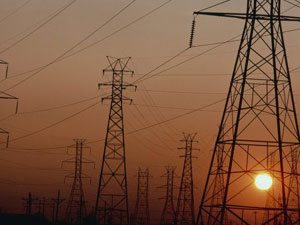
[miningmx.com] – THE Chamber of Mines of South Africa does not understand what is actually going on regarding the politics behind the energy crisis and is trying to engage with the country’s government in a way that makes no sense to the government.
That’s the view of MP Gordon MacKay, shadow minister of energy for the opposition Democratic Alliance party, who was addressing an electricity conference held in Johannesburg on March 25 by the Fossil Fuel Foundation.
“To understand what has gone wrong you have to look past Eskom to the political paymasters who are the shareholders behind Eskom. Fundamentally, it is all about the politics and, in particular, ‘covert’ politics versus ‘overt’ politics as well as party ideology.’
MacKay commented: “Officially, the ANC’s energy policy is based on the 1998 White Paper on energy, but there’s a problem. That paper was market-orientated and called for an increase in competition in the energy sector; market-related pricing and the dismantling of the Eskom monopoly.
“The 2014 ANC manifesto calls for centralised energy planning focused around big power stations all owned by Eskom which is at the centre of energy provision in the country.
“There are very distinct schools of thought within the ANC – one which is more socalist and centrist and one which is more market orientated. This constant incoherence within the ANC on its own policies is a key failure.
“There is a lack of policy coherence because of the difference between the National Democratic Revolution (NDR) – the far left of the ANC – versus the National Development Plan (NDP) which is the official document of the government, but it is the NDR that is constantly trotted out in Parliament.
“This plays out critically at the level of two departments that are fundamental to the resolution of the Eskom crisis – the Department of Energy which is far more progressive and pro the 1998 White Paper – and Department of Public Enterprises which is very much focussed on maintaining the monopoly and keeping Eskom the way it is.”
Mackay described ‘covert’ politics as “… those actions which are intangible. You see the manifestations but you don’t know how or why they occurred. These actions are shrouded in secrecy. More and more of South Africa’s politics is becoming covert.”
He added: “For example, Cabinet at the beginning of this year decided to tear up the 2013 IRP (Integrated Resources Plan) update which was generally considered to be a very good document. There was no explanation forthcoming.”
Mackay said he believed the reasons lay with the document’s position on nuclear power but added: “… we just don’t know. Questions to the minister have not solicited a response.”
“The political positions on energy are not very sophisticated. Politicians do not have the capacity to understand the issues or the skills to address them. Fundamentally, when you are talking to politicians on energy you need to do it in baby speak.
“It is critical to understand their ideology. If you are pitching a complete free-market solution to the ANC Caucus or the ANC members of a committee it’s not going to work.
“Business has to recognise the ideological drivers of political parties and has to understand how to align those because they are alignable – especially in a crisis situation. There is a quid pro quo.”









